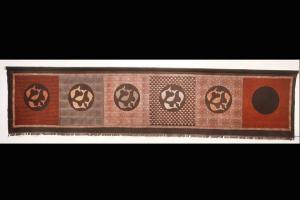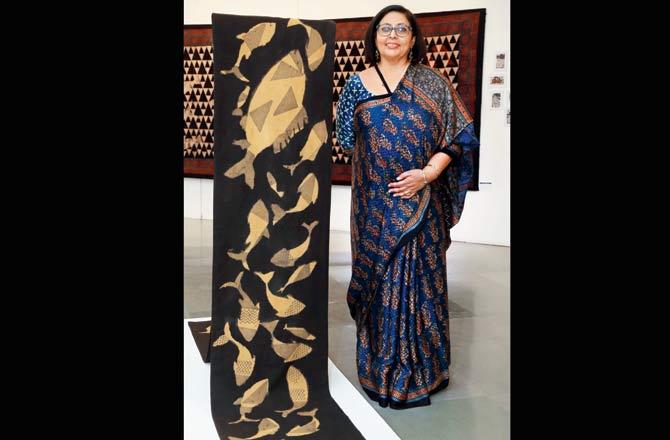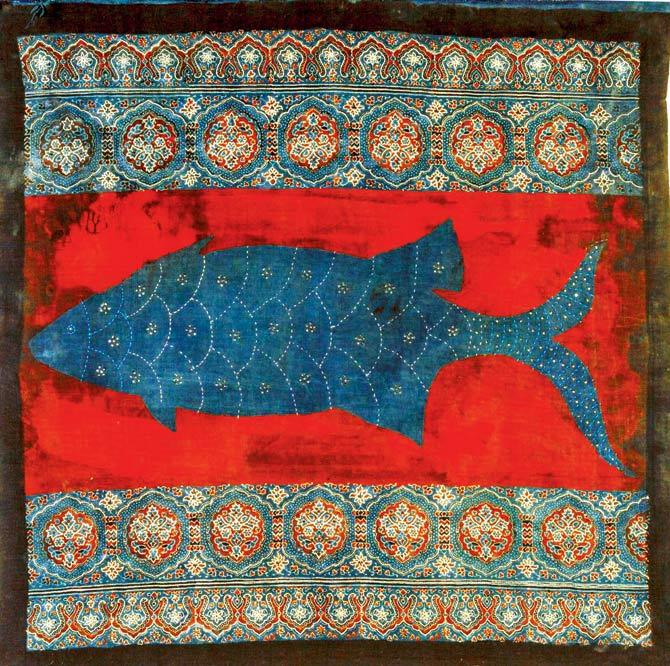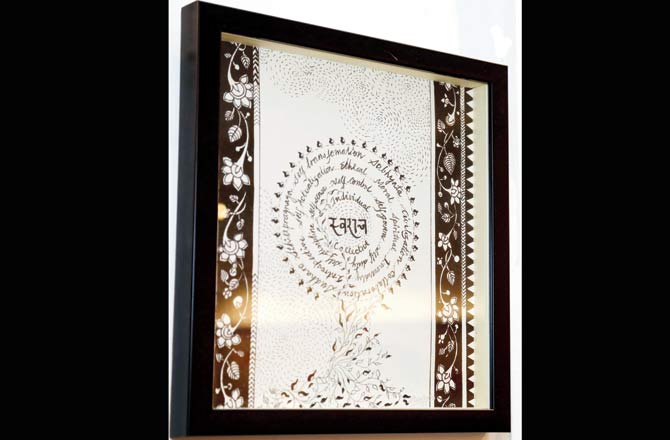Artist Shelly Jyoti's textile exhibition sees her work with centuries old ajrakh designs on khadi cloth to preserve the technique and place it in the modern context of Gandhi's vision of independence

Six bowls, bound by duty, ajrakh printing and dyeing on khadi fabric
The third stop of textile artist Shelly Jyoti's travelling exhibition is a result of a decade of research and contemporising Mahatma Gandhi's principles which she feels are relevant today - swadeshi, swaraj, swadharma and sarvoday. Jyoti had worked with ajrakh printing and dying techniques to create her Gandhian-themed works on khadi.
ADVERTISEMENT
"My works are centred on historical references within the cultural context of modern Indian history and contemporary fans with a huge focus on Gandhi," she shares. This exhibition is about Swaraj— self reliance, which actually began in 2008, when Jolly explored the idea of Swadharma —one's duty towards their country; and sarvoday that also means upliftment of all.

Shelly Jyoti
"This was the time India was in the midst of multiple scams, 26/11 terror attacks and not long after the Gujarat riots. I felt that citizens ought to do something, as we couldn't leave everything to politicians. My husband was at the Taj Mahal Palace Hotel on 26/11 and our house was about to be doused and ignited during the Gujarat riots.
That feeling of helplessness kickstarted my plan to fulfill the swadharma we have towards our country," she adds. And so, she came up with the five meters theory. "The 30 crore of the country's urban population is on the world map, while the 70 crore that includes handicraftsmen are not. If the 30 crore, buys five meters of handspun textile once a year, it helps the livelihood of artisans. This is how we can bridge that gap," Jolly explains.

Solitude from the fish series
As she came across an article that stated thousands of fish school together, it causes oceanic currents, she knew that's how self-awareness could work. And so, she's used fish as a metaphor in her works. All the blocks used are 200 to 300 years old, encapsulating the history of the artwork. "I felt I had to document the patterns as well. Ajrakh can also be translated to aaj rakh, which conveys the laborious nature of the technique — you don't dip the blocks and stamp it out. You first put the stamp, then dye it, and finally allow it to dry in the sun — which takes a whole day," she concludes.

The tree of Swaraj, bound by duty
Till December 2, 11 am to 7 pm
At Jehangir Art Gallery, 161B, Kala Ghoda, Fort.
Free
Catch up on all the latest Mumbai news, crime news, current affairs, and also a complete guide on Mumbai from food to things to do and events across the city here. Also download the new mid-day Android and iOS apps to get latest updates
 Subscribe today by clicking the link and stay updated with the latest news!" Click here!
Subscribe today by clicking the link and stay updated with the latest news!" Click here!






